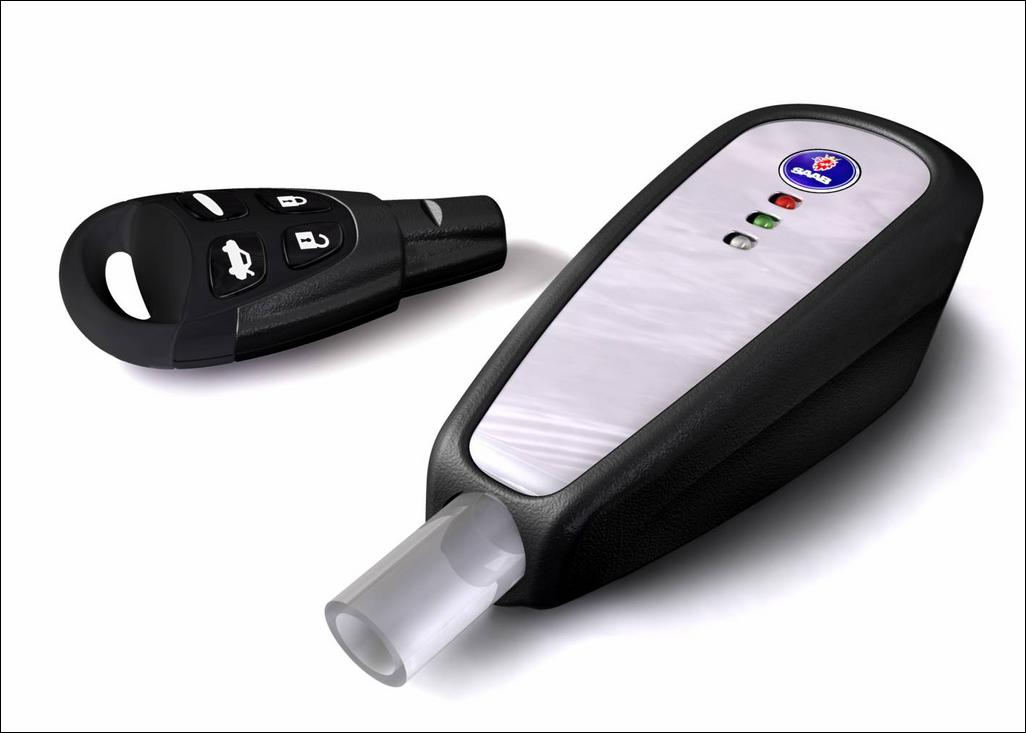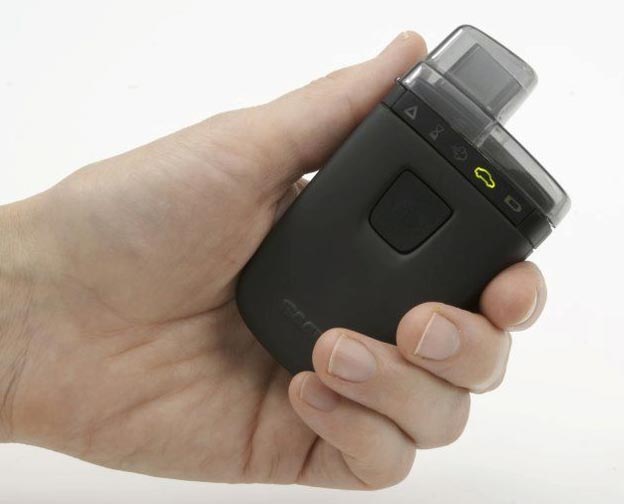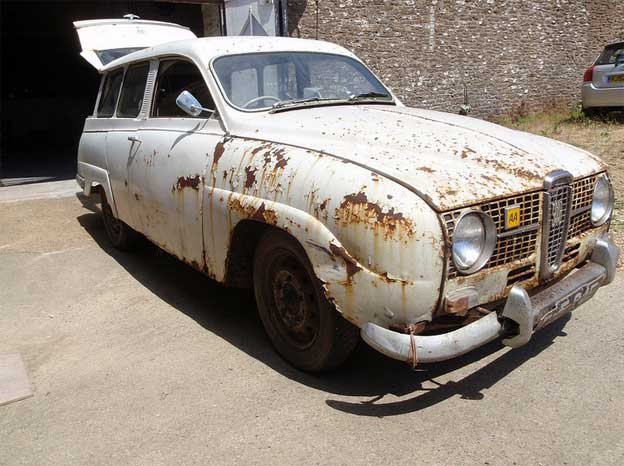Saab is once worked on developing an innovative car key that doubles up as a miniature breathalyser to prevent potential drink drivers from starting their cars.
What makes the Saab ‘Alcokey’ unique is its size and that it will be integrated into the car key – unlike more costly and complicated alcohol detecting devices fitted to a car’s dashboard or door locks.
Table of Contents
Saab Alcokey
Saab Alcokey have been tested in Sweden with the support of the influential Swedish National Road Administration.
Alcokey’s ease of use and relative affordability – around $400 – means it could be offered as an accessory through Saab dealers if the trials prove successful.
The Saab Alcokey concept features a small mouthpiece in the car’s key fob. When the driver presses the ‘doors open’ button on the car key fob, the alcohol sensor is also switched on.
Alcohol self-assessment test
The driver then blows into a small mouthpiece at the end of the fob to provide a breath sample which passes down a small internal tube containing a semi-conductor.
The sample is then analysed, and a small green or red light on the fob is illuminated. If the green light is shown, the key will transmit an ‘all clear’ signal to the car’s electronic control unit to allow the engine to be started.
However, if a red light is shown, the ‘all clear’ signal will not be sent and the engine will, therefore, remain immobilised.
Alcokey prototype
The software instructing the engine immobiliser can be adjusted according to statutory alcohol limits. Prototype Alcokey was a separate unit, about 10cm long and 4cm wide, additional to a conventional Saab key.

When this project was current, It is envisaged that the final production version of the Alcokey will see both the key and alcohol detector contained in a single, pocket-sized unit. Unfortunately due to known circumstances, this project was never completed to this stage.
Even then, Saab experts saw a problem that is still relevant today – Mounting concern about drink driving in Sweden as well as other countries has prompted Saab to develop the Alcokey concept.
Alcokey Prototype
This first concept was released sometime in 2004, and in 2006 Saab presented the completed concept. The AlcoKey is not a normal breathalyzer, that is to say, from what you blow, they tell you the rate of alcohol you have in your blood and then you do what you want.
No, this does not work that way, since Saab engineers have developed a system that sends the alcohol rate to the car by radio frequency and, based on this, allows or disables the ignition of the car.

Of course, someone might think, how does the AlcoKey differentiate our blow to a soccer ball when deflating it? Well, a temperature sensor determines if the air from the blow is the result of a person or any other object, in this way the absence of fraud is guaranteed.
This new model from 2006 was much more advanced and equipped than the previous one, and Saab then did the testing a pilot test with 100 cars incorporating this innovative system, with the help of various car fleet and taxi operators.
Also, as you can see, Saab engineers have managed to put two separate devices – a key fob and a breathalyzer – into one small case. The device is only slightly larger than the usual Saab key, but it has a few additional functions.
Alcokey and Fleet sales
An even more important use of the Alcokey concept would be in fleet sales, ie the sale of vehicles to companies that have large fleets and a large number of drivers of various categories.
Companies operating large car fleets could be anxious to demonstrate their social responsibility by having an alcohol-detecting device such as Alcokey fitted as standard. Insurance companies may also provide incentives for drivers of cars fitted with Alcokey.
Alcoholism as a big problem in traffic
Saab always was an innovative brand and in that tradition the Alcokey concept was a very practical and efficient solution. If there was time for this concept to come to life, then Alcokey would help those who want to be sure they should only get behind the wheel when they are fit to drive.
In 2018, 75 people died in alcohol or drug related crashes (23% of all road fatalities on Swedish roads) compared with 81 people in 2017.











